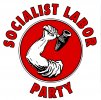You are using an out of date browser. It may not display this or other websites correctly.
You should upgrade or use an alternative browser.
You should upgrade or use an alternative browser.
The Fire Never Dies: Labor's Star Ascendant
- Thread starter Meshakhad
- Start date
-
- Tags
- iww socialist america
Conversely, if Johnson had been actually doing anything wrong, King would probably have overlooked any unfair treatment due to his race. If anything, it might have been Johnson on the receiving end of King's anger - the man was a stickler for discipline (although not in a way that the sailors disliked - he was quite popular with his subordinates).Yeah, if the sailor were white and suffered similar treatment, methinks King would have acted the same...
Talk about kicking the hornet's nest--is it bad that I'm rooting for the socialists in TTL?
If it helps, think of it as rooting against the KKK.
To be fair, I am a socialist (and a Wobbly), so I'm definitely portraying the socialists as the good guys. Not saints, mind you.Well, @Enzo, compared to their opponents, they would be better leaders of the country than the KKK/Whites, IMO...
They'd still have some issues (see the timeline Reds! on the Sufficient Velocity forums for more about this), but they wouldn't engage in ethnic cleansing, IMO...
Farmers are divided. In some places (Oklahoma comes to mind) they are strong socialists. Elsewhere, they're the mainstay of the Whites. And of course, plenty of farmers just want to keep their families safe.Who do the Farmers support in the Civil War?
59. The Commissariats
…Debs had hoped to defer all questions about what form the postwar government would take until after the war, fearing that to make that choice now would lead to schism – or, worse, that the pressures of the war would lead to the creation of an authoritarian regime. The GDC had been established as a temporary body, after all. But by October, Debs had to confront the reality that he was the head of a body now responsible for governing most of the United States. Some questions had to be answered now…
…At the top of the list was the issue of wartime industry. As his Army of Manhattan had overran much of the East Coast, General Bronstein had placed much of its industry under military control and ordered production retooled to support the war effort. This had been generally accepted at first, but a pushback had begun, particularly as Bronstein’s demands increased and the supply of consumer goods became an issue. Several factories (now under worker control) had outright refused his orders, and he was demanding the GDC do something about it…
…After a rather tense discussion between Debs and Bronstein, the commissariat system was proposed (the name suggested by Bronstein). These were pitched to the GDC as a wartime expedient to be replaced by a postwar civilian government. The first two commissariats established on October 17 were the Commissariat for Industry and the Commissariat for War. The Commissariat for Industry would handle all industrial production, ensuring that neither the populace nor the military were denied vital resources, while the Commissariat for War would oversee the military effort…
…Heading up the Commissariat for Industry would be none other than Daniel DeLeon. Despite his immense influence on the ideology of the IWW, SLP, and eventually the ASU, DeLeon’s influence had waned, in part due to a period of poor health between 1914 and 1916[1]. He was still editor of the Daily Worker, but he had had to take a leave of absence from more intense duties with the SLP. Now recovered, he would take on the herculean task of organizing Red American industry. Fortunately, he had spent decades developing his particular syndicalist ideology, and would now be able to put it into practice…
…William Z. Foster, the first Commissar for War, had a similar task. He had barely assumed his duties when the Navy Mutiny happened. This greatly magnified his responsibilities, but it helped him deal with his single biggest problem: General Leon Bronstein. Bronstein had objected to not being given the position of Commissar for War while simultaneously being in command of the Red Army (and remaining at the Army of Manhattan’s HQ in Philadelphia rather than move to Chicago). What made him particularly hard to deal with was that he had proven to be an excellent general and Foster found it difficult to turn down his suggestions. The formalization of the Red Navy under Admiral Strauss put another voice in the room (so to speak – Strauss maintained his own headquarters in New York), and one of a career officer to boot. Strauss firmly rejected any notion that the Red Navy should be subordinate to the Red Army, even proposing that a separate Red Air Force be created (as would ultimately happen after the war). Strauss helped Foster keep Bronstein under control, backing the suggestions that had obvious merit and quashing those that were more about Bronstein’s ego…
…The commissariat system proved an effective one. Before long, new commissariats were established. George C. Porter, a congressman from Nebraska before the war, became Commissar for Agriculture. Benjamin Hanford became Commissar for Foreign Affairs, although he would have little to do for a while beyond negotiating with Canada to allow goods and people to cross the border once more. Far from being a temporary measure, the commissariats would become a permanent feature of American government…
- From A New Union: A Political History of the American Socialist Union by Hillary Rodham
[1] As mentioned before, DeLeon died in 1914 IOTL.
…At the top of the list was the issue of wartime industry. As his Army of Manhattan had overran much of the East Coast, General Bronstein had placed much of its industry under military control and ordered production retooled to support the war effort. This had been generally accepted at first, but a pushback had begun, particularly as Bronstein’s demands increased and the supply of consumer goods became an issue. Several factories (now under worker control) had outright refused his orders, and he was demanding the GDC do something about it…
…After a rather tense discussion between Debs and Bronstein, the commissariat system was proposed (the name suggested by Bronstein). These were pitched to the GDC as a wartime expedient to be replaced by a postwar civilian government. The first two commissariats established on October 17 were the Commissariat for Industry and the Commissariat for War. The Commissariat for Industry would handle all industrial production, ensuring that neither the populace nor the military were denied vital resources, while the Commissariat for War would oversee the military effort…
…Heading up the Commissariat for Industry would be none other than Daniel DeLeon. Despite his immense influence on the ideology of the IWW, SLP, and eventually the ASU, DeLeon’s influence had waned, in part due to a period of poor health between 1914 and 1916[1]. He was still editor of the Daily Worker, but he had had to take a leave of absence from more intense duties with the SLP. Now recovered, he would take on the herculean task of organizing Red American industry. Fortunately, he had spent decades developing his particular syndicalist ideology, and would now be able to put it into practice…
…William Z. Foster, the first Commissar for War, had a similar task. He had barely assumed his duties when the Navy Mutiny happened. This greatly magnified his responsibilities, but it helped him deal with his single biggest problem: General Leon Bronstein. Bronstein had objected to not being given the position of Commissar for War while simultaneously being in command of the Red Army (and remaining at the Army of Manhattan’s HQ in Philadelphia rather than move to Chicago). What made him particularly hard to deal with was that he had proven to be an excellent general and Foster found it difficult to turn down his suggestions. The formalization of the Red Navy under Admiral Strauss put another voice in the room (so to speak – Strauss maintained his own headquarters in New York), and one of a career officer to boot. Strauss firmly rejected any notion that the Red Navy should be subordinate to the Red Army, even proposing that a separate Red Air Force be created (as would ultimately happen after the war). Strauss helped Foster keep Bronstein under control, backing the suggestions that had obvious merit and quashing those that were more about Bronstein’s ego…
…The commissariat system proved an effective one. Before long, new commissariats were established. George C. Porter, a congressman from Nebraska before the war, became Commissar for Agriculture. Benjamin Hanford became Commissar for Foreign Affairs, although he would have little to do for a while beyond negotiating with Canada to allow goods and people to cross the border once more. Far from being a temporary measure, the commissariats would become a permanent feature of American government…
- From A New Union: A Political History of the American Socialist Union by Hillary Rodham
[1] As mentioned before, DeLeon died in 1914 IOTL.
Tbh it just sounds like a cabinet for the GDC to meProto-bureaucratic collectivism? Proto-New Class?
Pretty much. The main reason I had this happen now is so the term "commissariat" appears and gains enough traction for it to become permanent.Tbh it just sounds like a cabinet for the GDC to me
I'm wondering what will be the fate of the progressive Republicans and Democrats, or otherwise mainstream politicians that happened to be against violently suppressing the socialists post war?
I could see the ones willing to accept the Revolution forming a (to the ASU's standards) right-wing party that has some vague commitment to reformist social democracy.
I could see the ones willing to accept the Revolution forming a (to the ASU's standards) right-wing party that has some vague commitment to reformist social democracy.
What was the source for the King update in-universe? You forgot to add that, @Meshakhad...
A lot of them decided to back Wilson in the end, given that the immediate response of the socialists was not any kind of passive resistance but an open revolt. Pretty much all of the non-socialists in Congress are still there. Some politicians, however, have either backed the Revolution or stayed on the sidelines, especially those who were out of office.I'm wondering what will be the fate of the progressive Republicans and Democrats, or otherwise mainstream politicians that happened to be against violently suppressing the socialists post war?
I could see the ones willing to accept the Revolution forming a (to the ASU's standards) right-wing party that has some vague commitment to reformist social democracy.
Added.What was the source for the King update in-universe? You forgot to add that, @Meshakhad...
[
He was in OTL.. What? Iseached him but found Nothing on Him.George C. Porter,
He was an SPA candidate for Congress in 1912 and Governor in 1914. ITTL, he was elected to Congress in 1914.[
He was in OTL.. What? Iseached him but found Nothing on Him.
The description of the Commissariats gives us a glimpse into what the new economy and domestic policy will look like. I'm eager to see those expanded on in order to get an idea of what a uniquely American socialist system might look like.
On the fa, they don't signify much. As @piratedude said, they're basically a cabinet. However, there are three important factors at play here.The description of the Commissariats gives us a glimpse into what the new economy and domestic policy will look like. I'm eager to see those expanded on in order to get an idea of what a uniquely American socialist system might look like.
The first factor is that the Commissariats are here early. When the Second Constitutional Convention meets after the war, they will have had a few years to get established. They will be institutions with significant power. At the very least, there will be no chance of getting rid of them.
The second factor is that they are national institutions. Debs and the GDC could simply have relied on the existing state governments. By now, all the states that are firmly under Red control have socialist governments in place (although some of those, like Ohio and Michigan, are rather shaky, and Iowa and Nebraska are basically under military rule). Instead, a tradition of more centralized leadership is in place. Federalism will not be as popular in the ASU.
The third factor is that the most powerful of the Commissariats, the Commissariat for Industry, is run by Daniel DeLeon. While I wouldn't go so far as to say that he has a free hand, he will be able to put his theories into practice. And that's going to have consequences.
This is kind of random, but the colors of the flag are making me wonder how it will affect the representation of particular colors in media. OTL America rise in cultural dominance has made the red, white, and blue color scheme deeply linked to America and certain values. Black and red (or at least red when used together together with black), on the other hand, are quite negative colors that are, off the top of my head, often connected to concepts like darkness, evil, malice, etc. The idea that this perception might change with such a prominent symbol adopting them has thus occurred to me. It isn’t the sort of thing that would have a significant impact on this timeline, but it makes me think about how, or even if, it might change.Also, meet the second version of my proposed flag:
Last edited:
The interesting thing is that red's negative associations are rooted in the same reason for its use by socialists: the association with blood. For example, would TTL's version of Star Trek (and there will definitely be a Star Trek) have the Red Alert?This is kind of random, but the colors of the flag are making me wonder how it will affect the representation of particular colors in media. OTL America rise in cultural dominance has made the red, white, and blue color scheme deeply linked to America and certain values. Black and red (or at least red when used together together with black), on the other hand, are quite negative colors that are, off the top of my head, often connected to concepts like darkness, evil, malice, etc. The idea that this perception might change with such a prominent symbol adopting them has thus occurred to me. It isn’t the sort of thing that would have a significant impact on this timeline, but it makes me think about how, or even if, it might change.
I’m more into fantasy than sci-fi so I don’t really know how changes might affect that genre. For that specific example though, I would assume it depends on when red started being used to indicate things like danger with lights and phrases like red alert. Personally, I was considering how red and black feels like a common color scheme for villains or, in a strictly fantasy sense, how it is a common coloring for evil forces/magicThe interesting thing is that red's negative associations are rooted in the same reason for its use by socialists: the association with blood. For example, would TTL's version of Star Trek (and there will definitely be a Star Trek) have the Red Alert?
I don't know about this tbh. Why would they use the bisected Ancom/Ansyn flag a la Reds? The IWW proper used red fields before and today. Their biggest symbol was the red flag and the IWW's globe and stars. See this pennant. The Red and Black wouldn't pop up until the Spanish Civil War, where the Anarchists were in a powerful enough position to be represented visually.Also, meet the second version of my proposed flag:
Pre-Soviet imagery is a crazy treasure trove and a good inspiration for how different things could have went. Here are some links. (Mostly in France, though the IWW and SLP probably have just as much rich a graphic history as well).
the OTL SLP symbol was an arm holding a hammer in a red field, though they also used the shaking hand symbol that the Socialist Party of America also usedI don't know about this tbh. Why would they use the bisected Ancom/Ansyn flag a la Reds? The IWW proper used red fields before and today. Their biggest symbol was the red flag and the IWW's globe and stars. See this pennant. The Red and Black wouldn't pop up until the Spanish Civil War, where the Anarchists were in a powerful enough position to be represented visually.
Pre-Soviet imagery is a crazy treasure trove and a good inspiration for how different things could have went. Here are some links. (Mostly in France, though the IWW and SLP probably have just as much rich a graphic history as well).



Share:

